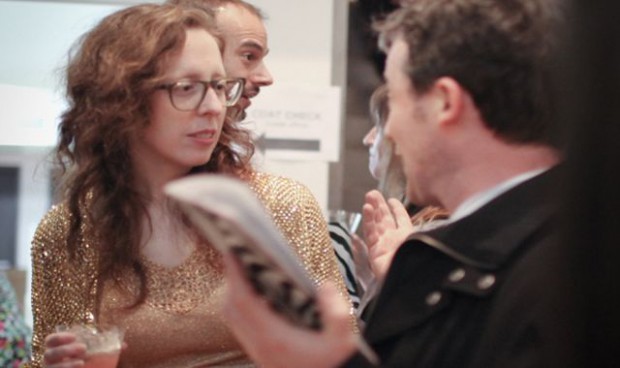I spent a bit of time yesterday talking to ARTINFO Canada’s Sky Goodden about criticism here and in Canada for her Critics Q&A Series. Turns out, I’ve got quite a bit to say. An excerpt:
Standing somewhat outside of it now, what do you think of the current climate for criticism in Canada? What needs work, and in what ways do we succeed?
The biggest issues I see for art criticism in Canada are two-fold; one, there’s not enough of it; two, there’s not enough celebrating of the talent we’ve got. (I’m an ex-pat, but I’ll use “we” here, since I do feel like I have a stake in this.) The first problem is difficult to solve; art press in mainstream media has been shrinking for years and that’s a reality for everyone. The problem is compounded by the Canada Council for the Arts‘s arts writing and publishing sectors, which are hopelessly conservative and don’t seem to fund anyone taking real risks. Of course, that’s minor trouble relative to the larger political picture. If Canada wants to preserve the arts funding it has, its citizens needs to fire Prime Minister Stephen Harper. The only good thing he’s done for the arts was inadvertent: he inspired Hooded Fang’s “No One Dances Like Michael Ondaatje.”
The second problem — reluctance to celebrate our own talent — may be culturally embedded. Take RM Vaughan, the former Globe and Mail art critic. He’s easily amongst the top five art critics working today, but when he left for Berlin last year, all I saw were a few sad comments on his Facebook page. Granted, as I understand it, he’ll only be gone for a year, but it’s a loss, and it would have been good to see someone say so. I’ve seen Vaughan turn phrases that have the forcefulness of Christian Viveros Faune, the plainspoken insight of Dave Hickey, and the lyricism of Peter Schjeldahl. Vaughan should never have to do anything but write.
As for successes, while Canada may not have a lot of critics, the talent pool does seem to be extraordinary. Only a small percentage of us enter the workforce talent fully formed; the rest of us have to work like hell to develop the skills we have. Perhaps the great, uncelebrated success of Canadians is our willingness to accept our own mediocrity, and nurture it into talent that exceeds its own promise.
To read the full piece click here.



Comments on this entry are closed.